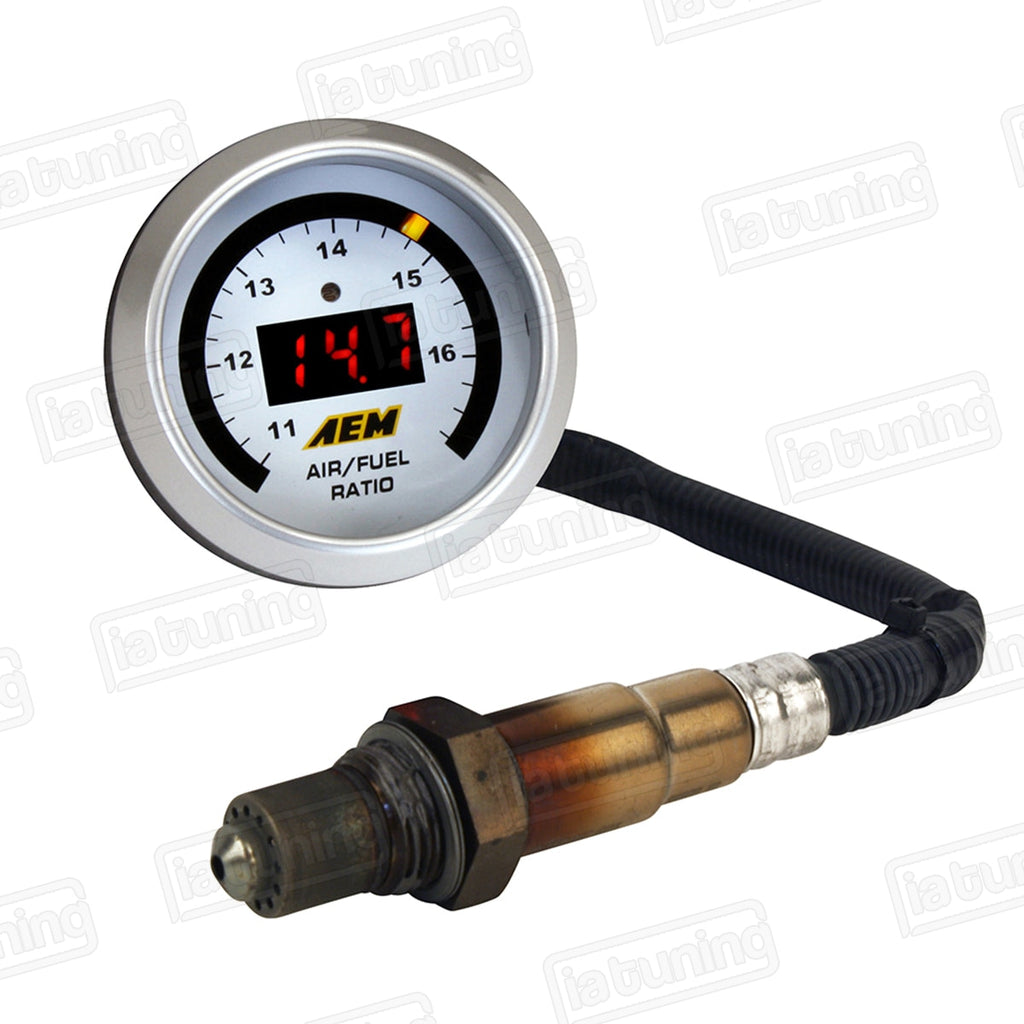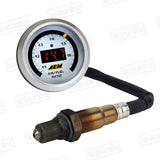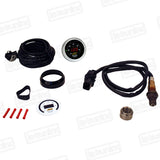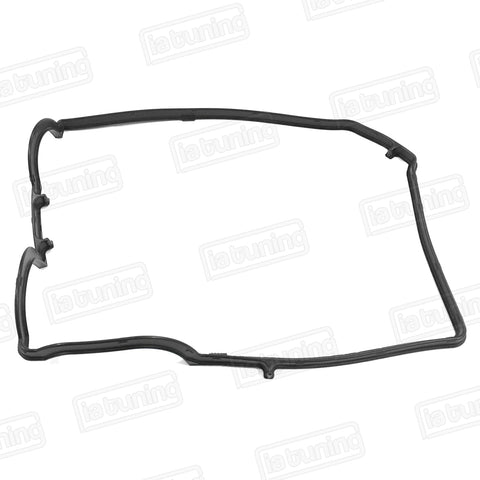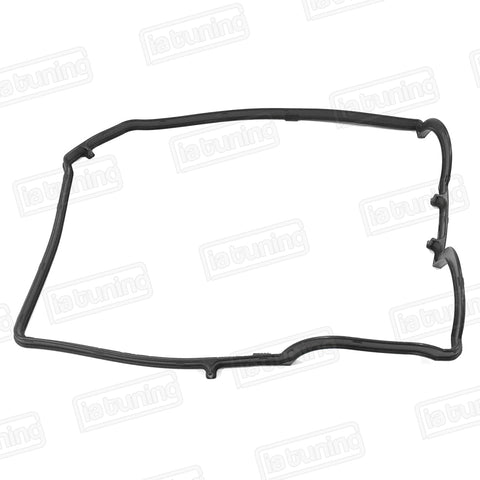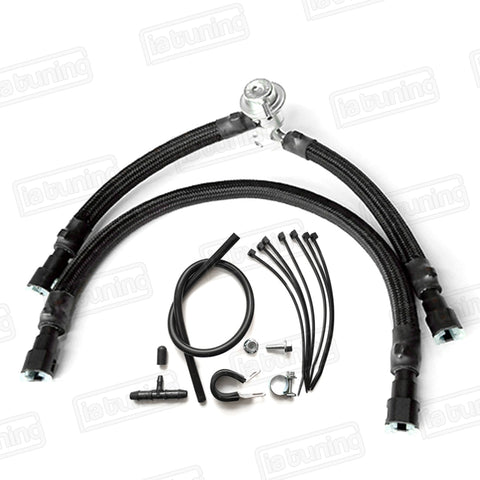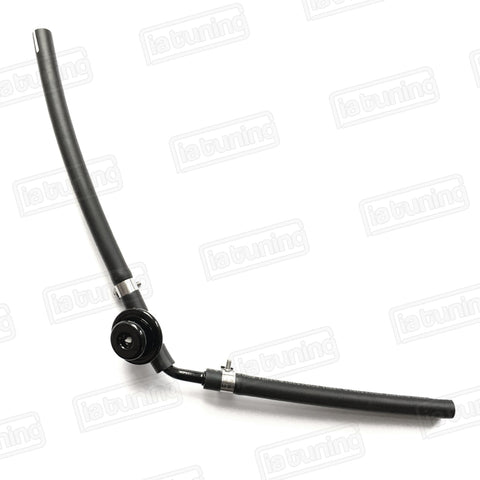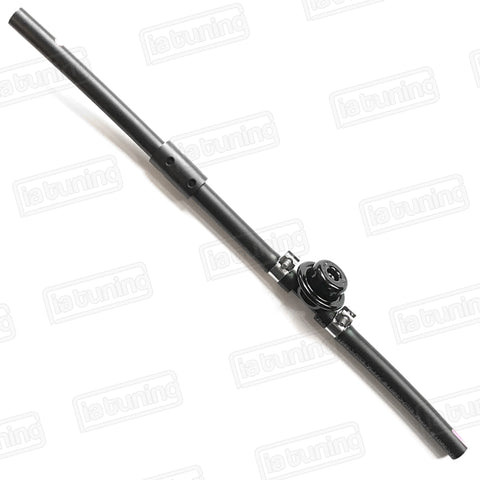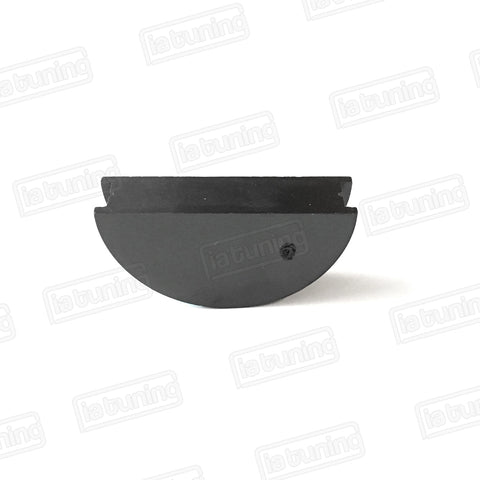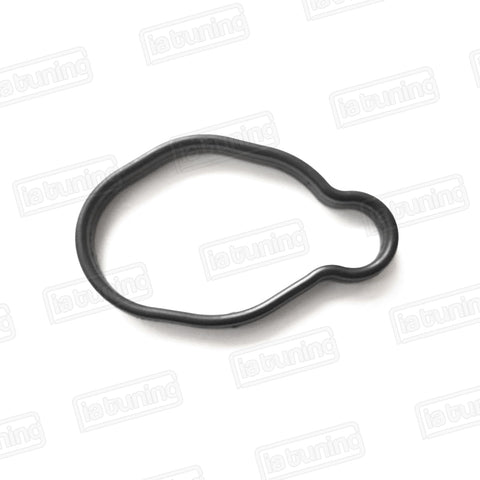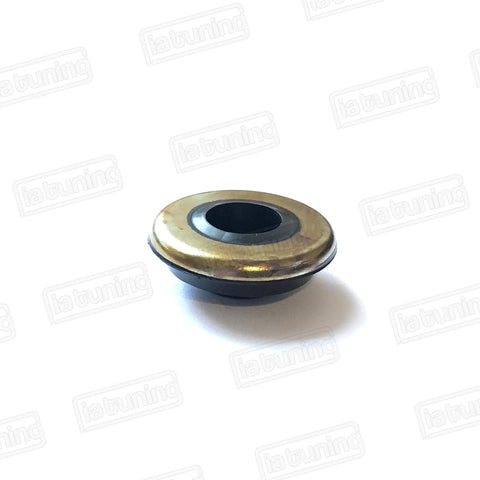AEM UEGO Wideband Air/Fuel Gauge 30-4110
- Brand: AEM
- Product Sku:
- Categories Air Fuel Ratio, Engine/Power
AEM UEGO Wideband Air/Fuel Gauge 30-4110
Our World-famous Wideband O2 air/fuel ratio UEGO gauge features a digital LED display and sweeping LED 'needle' that changes colors as AFR changes from rich to lean. A 52mm (2-1/16") gauge housing ensures that it will fit in most gauge pods and can be remotely mounted virtually anywhere. All AEM digital gauges feature a 0-5v analog output for use with data loggers and almost any engine management system. Each gauge comes with black and silver bezels and black and white faceplates for multiple color combinations and a custom look (a black Lambda faceplate and black and white Air/Fuel Ratio faceplates).
The Bosch UEGO sensor gives the controller its speed and accuracy. The Bosch 4.9 LSU sensor used in the 30-4110 AEM Wideband UEGO AFR Controller Gauge has a faster light off time and draws less current than the 4.2 LSU sensor used with AEM’s 30-4100 Wideband UEGO Controller Gauge, which will be superseded to the 30-4110 gauge in August, 2014. The 4.9 LSU sensor features the same fuel compatibility as the 4.2 LSU and NEVER requires free-air calibration when used with AEM’s 30-4110 Wideband UEGO AFR Gauge. The 30-4110’s 4.9 LSU sensor uses a different connector than the connector used with the 4.2 LSU sensors included with the original 30-4100 gauge controller. The sensors are not interchangeable between the two gauge controllers in any way, including changing connectors on the gauges.
The Wideband O2 air/fuel ratio UEGO gauge is a must if you want to maximize your engine's power and safety. When tuning an engine, accurate air/fuel ratio data is critical because running with too rich of an AFR can cause a loss of power, and running a lean AFR can result in serious engine damage. AEM's digital Wideband AFR UEGO gauge can quickly alert you to even a .1 change in air/fuel ratio and provide enough time to shut down an engine before damage occurs.
- Interchangeable black and white faceplates included for customizing gauge appearance
- Bosch 4.9 LSU wideband sensor and weld-in bung included
- No free air sensor calibration required - ever
- Interchangeable black and silver bezels included
- Interchangeable black and white faceplates included 52mm (2-1/16”) gauge housing
- 0-5v analog output (10-20 AFR range only)
NOTE: The 30-4100 Wideband UEGO Gauge Controller that uses the Bosch 4.2 LSU sensor will be superseded to the 30-4110 Wideband UEGO Gauge Controller that uses the Bosch 4.9 LSU sensor in August 2014. Instructions for the 30-4100 will still be available in the Instructions tab after this change.
WHAT IS A WIDEBAND UEGO AIR/FUEL CONTROLLER?
AEM's Wideband UEGO (Universal Exhaust Gas Oxygen, pronounced “You-Way-Go”) Controllers are powerful, cost effective tuning tools that allow users to accurately monitor the Air/Fuel Ratio (AFR) of their engine.
WHY USE A WIDEBAND AIR/FUEL CONTROLLER?
Accurate AFR data is critical when tuning an engine. Running rich (very low air/fuel ratio, excessive fuel) can cause a loss in power, while running too lean (very high air/fuel ratio, not enough fuel) may result in serious engine damage. Using a wideband air/fuel controller during the tuning process allows you to monitor AFR and adjust tuning parameters to optimize them for maximum power and efficiency. AEM has a comprehensive line of highly accurate, reliable wideband air/fuel controllers that can help ensure your vehicle is optimally tuned.
WHAT IS FREE-AIR CALIBRATION?
Some of our competitors require that you frequently perform a free-air calibration procedure to calibrate their O2 sensors. This process involves removing the sensor from the bung while still connected to the controller device, then waving the sensor in the air so it can read atmospheric O2 levels. We use Bosch 4.9 LSU sensors in our wideband controllers. Our sensors are individually laboratory-calibrated by Bosch and never require free air calibration!
CAN I CHANGE THE AEM UEGO SENSOR’S CONNECTOR?
No. There is a laser-etched, calibrated resistor in the sensor’s connector body. This resistor is specifically created for the exact sensor that it is attached to. Modifying this will invalidate the sensor’s output.



